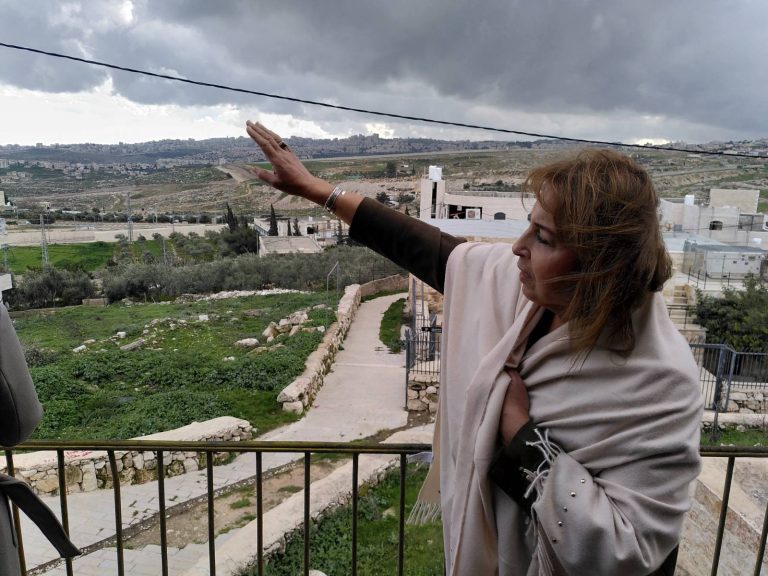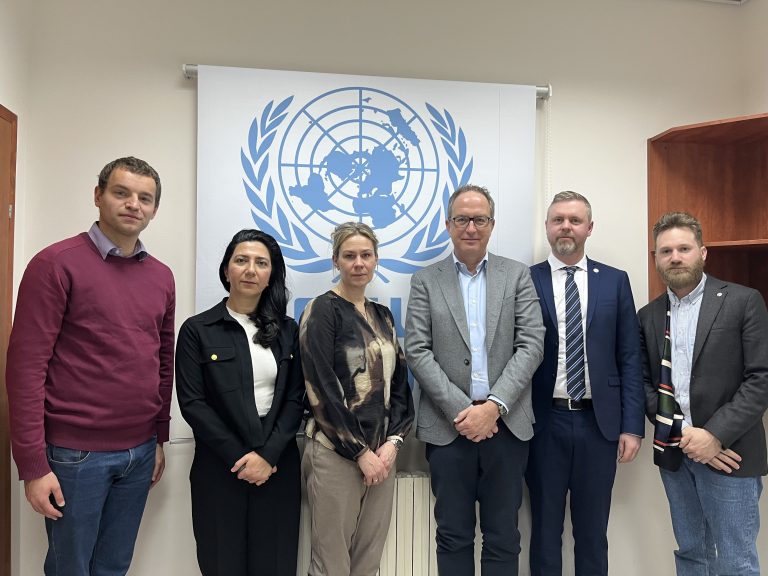THE DIRE SITUATION IN WAR-TORN PALESTINE
THE DIRE SITUATION IN WAR-TORN PALESTINE
A delegation of Olof Palme International Center, SOLIDAR member based in Sweden, has recently travelled to Palestine and Israel to meet their local partners and other political representatives and civil society organisations.
Anna Sundström, Secretary General of Olof Palme International Center and Chair of the SOLIDAR International Cooperation Forum, was part of the delegation. She reported that while the visit was appreciated by the partners, there was also great frustration and disappointment with Sweden and the government’s choice to freeze aid to Palestinian civil society and, until recently, UNRWA. “They feel abandoned,” says Anna Sundström.
Increased repression in the West Bank
“There is a great sense of helplessness among partners about what is happening in Gaza,” she continues.
But the situation in the West Bank is also very serious. Since October last year, attacks by Israeli settlers and security forces have increased significantly. People are afraid for their lives.
Oppression has always created some kind of latent fear, but it is on a completely different level now.

Freedom of movement has been further restricted, and people now refrain from moving from one place to another. They stay at home and many have not seen family members from other parts of the West Bank since October 7.
In the West Bank, military checks have also become more random and unpredictable. The population calls them ‘flying checkpoints’ as they can appear just about anywhere. They are often manned by armed settlers and there is always a great deal of uncertainty about how they might act. There is harassment and cases of people being shot as they pass through.
It is also more difficult for Palestinians to enter Jerusalem. Between 200 000 and 300 000 Palestinians who normally work in Israel have had their work permits revoked, affecting the economy of both Palestine and Israel.
In addition, people can be stopped on the street and have their phones searched. For example, if someone has liked something on social media that criticizes Israel, they risk having their phone confiscated and getting arrested.
All this also makes it difficult for Palme Center partners to work and engage with people in the West Bank.
Workers have been imprisoned, killed and lost their homes in the Gaza Strip.
Palme Center’s partner organization PYALARA monitors the human rights situation in Palestine and strengthens the role of young people in public decision-making and in the work towards self-determination and peace. They work both in the West Bank and in Gaza, but in Gaza the staff is facing an extremely difficult situation. Their homes have been bombed and they are constantly on the run.
The head of operations in Gaza, Alaa, was also detained for over 40 days. He was arbitrarily arrested at an Israeli checkpoint while his sister was being transported by ambulance to hospital. The organization had no information about what had happened to him or where he was being held until he was released in January. Only then was he able to contact the organization from a phone belonging to a Red Crescent staff member, as his own phone and ID documents had been confiscated.
Alaa was tortured in prison and has come out completely broken. According to his colleagues, he is barely recognizable. Upon his release, he also received the heavy news that his parents were killed in the Israeli airstrikes.
One of the organization’s employees has also been killed in the bombings: Nermeen. She was killed together with her daughter and mother in her family home where she had taken refuge.
“All Palestinians have lost someone or know someone who has been affected,” says Anna.
Aid to UNRWA freezed

During the visit to their office in Jerusalem, UNRWA staff also told the delegation that many of their employees cannot get to work, even though they still have work permits.
They also put forward that for twenty years they have been providing lists of their staff to the Israeli authorities. Never before have they received a comment on them.
In January, Israel accused 12 UNRWA employees of involvement in the October 7 Hamas terrorist attack. Several donor countries immediately froze aid to the UN agency, including Sweden. The first announcement of the aid being freezed came the day after the International Court of Justice (ICJ) deemed it plausible that Israel is committing genocide in Gaza.
UNRWA immediately initiated a UN investigation and dismissed the accused employees, although the results of the investigation have not yet been presented. However, the organization has not yet been presented with any evidence of the allegations. The US intelligence community also states that the information provided to the US cannot be verified by independent sources.
“It is an absurd situation. There is a smear campaign against them. The accusations from Israel are extremely serious, but it is not proportionate to demand that the entire organization shuts down when the lives of so many people are at stake.”
Otto Widmark, MENA officer at the Palme Center
Last 30 January, Sida, the Swedish development agency, announced that Swedish humanitarian aid to UNRWA would be suspended pending the UN investigation and that other humanitarian aid organizations would be offered increased support instead as compensation. But several organizations declined to accept the aid, arguing that no other actor can replace UNRWA, and that aid to the UN agency should be resumed immediately. 80 percent of all humanitarian aid in Gaza is delivered by UNRWA, and other organizations also rely on the UN agency to distribute their aid deliveries.
Resume aid to Palestine!
Swedish aid to UNRWA resumed on 9 March and Sweden is again cooperating with the organization. However, the process has been costly. With each passing day, hunger, shortages of medicines and other humanitarian aid are increasing.
However, development aid to Palestinian civil society remains frozen and has been paused since mid-October last year.
The government’s decision to pause aid to these forces is counterproductive. It needs to be resumed urgently, for the sake of all parties.


